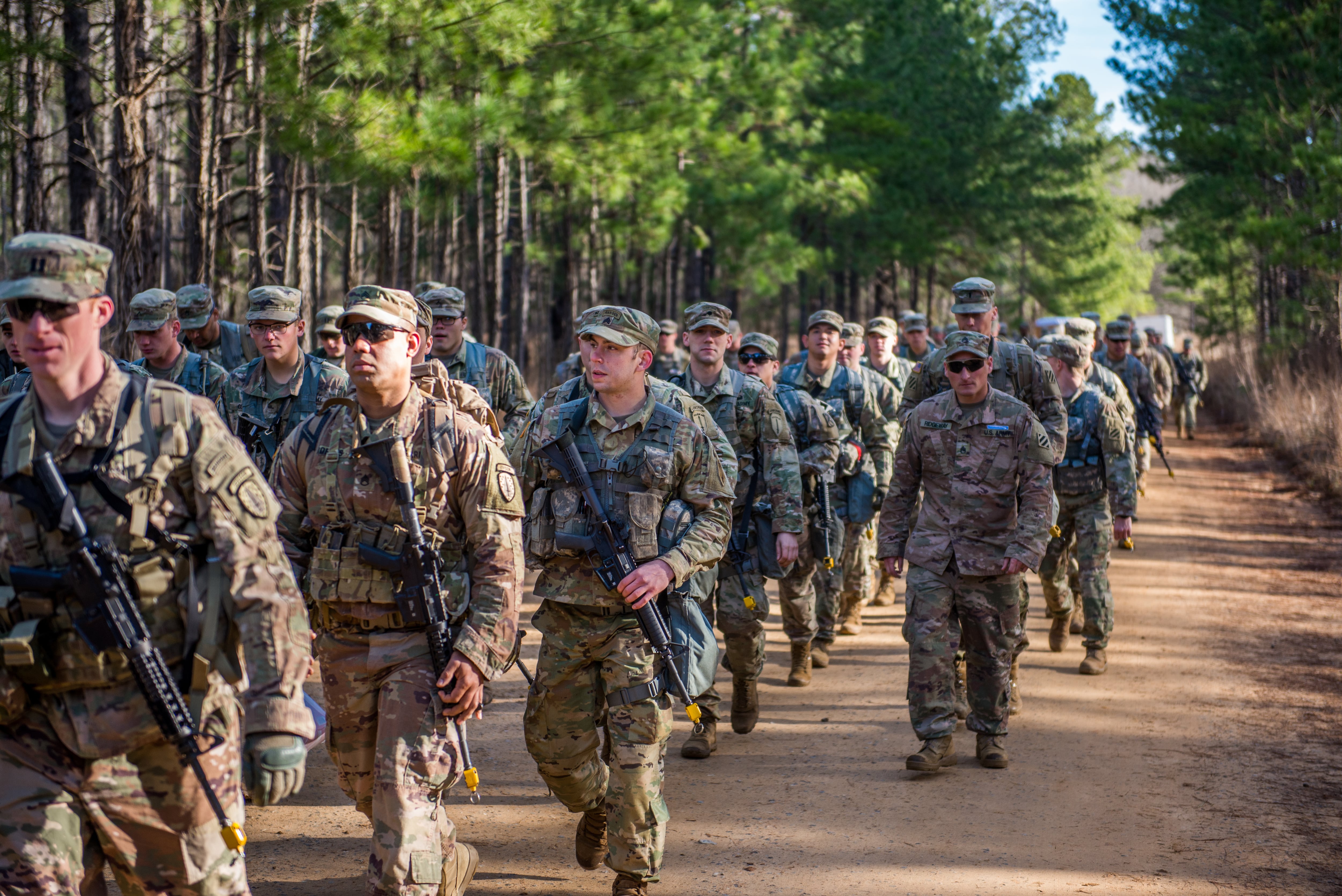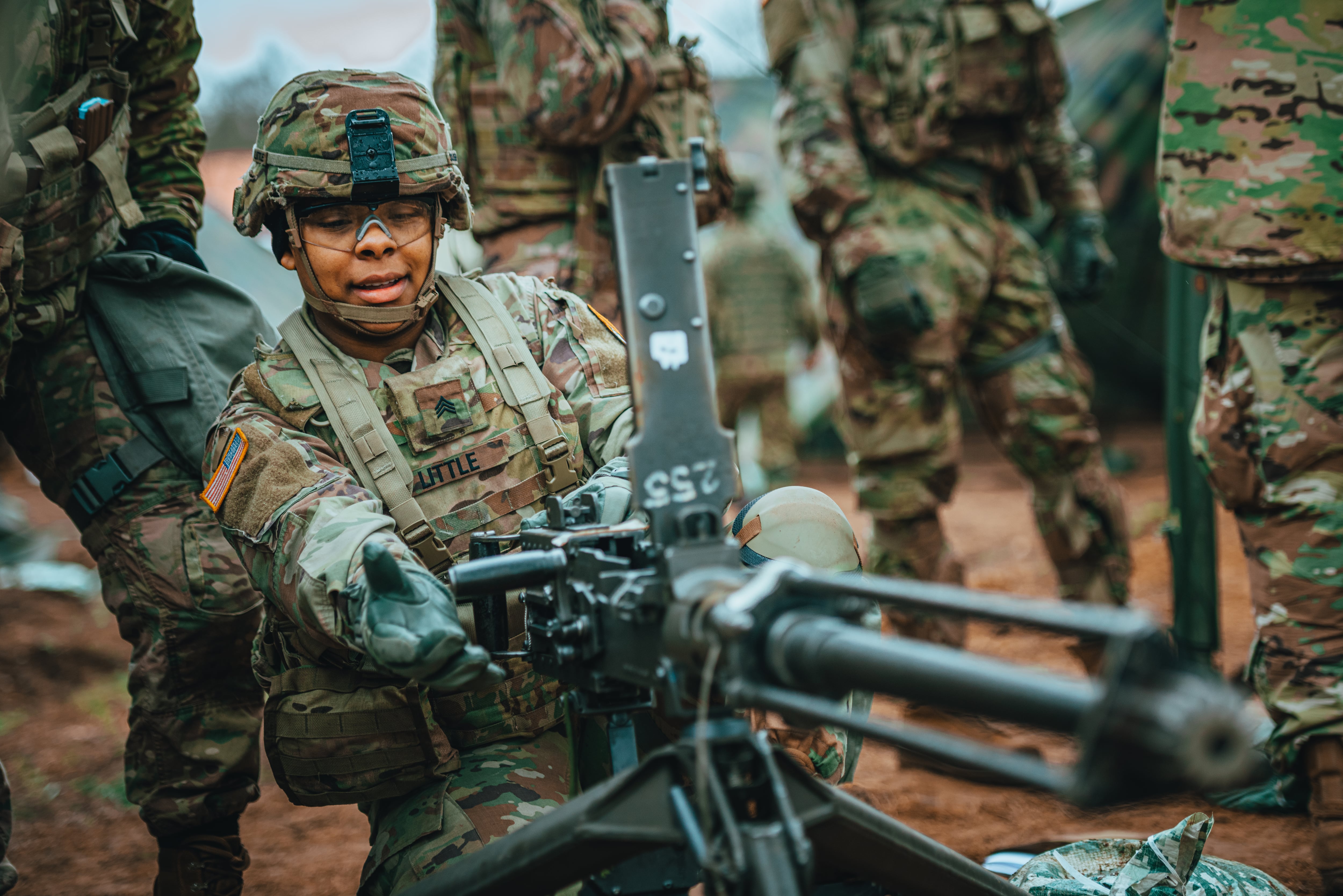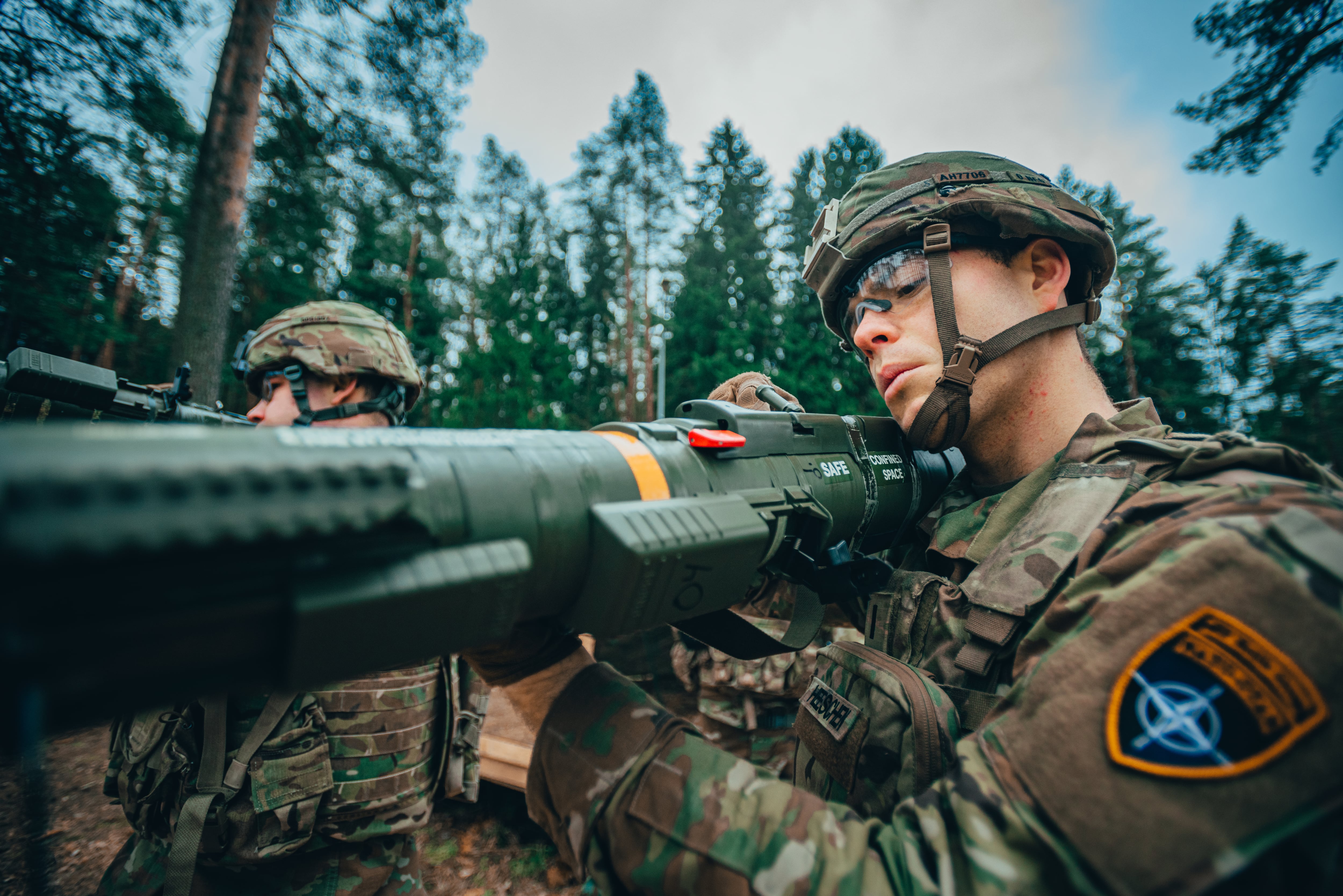Soldiers deployed to Poland will continue an expert infantry badge train-up despite coronavirus concerns, as it’s considered mission-essential, according to officials from the unit there.
Troops at various posts have expressed concern to Army Times over the push to continue training through the pandemic. While non-essential training has started to end as the service comes to terms with the severity of the crisis in recent days, there are still differences of opinion about what’s truly essential.
At 3rd Squadron, 2nd Cavalry Regiment, in Poland, soldiers still plan to conduct EIB testing next week, a soldier there told Army Times.
“Our whole squadron is still doing EIB train up, where hundreds of people are standing right next to each other, all day," the soldier said. “All they are doing is telling people to try and stay six feet away from each other, which isn’t really possible for what we’re doing and definitely doesn’t happen."
“We are still doing PT with people extremely close to each other," the soldier added, “such as holding feet for sit-ups.”
The squadron is currently deployed as part of NATO’s Battle Group Poland, a deterrence presence set up following Russia’s annexation of Crimea. Their home station is Rose Barracks, Germany.
“We do we have a readiness mission here," said 3rd Squadron commander Lt. Col. Andrew Gallo during a townhall discussion Thursday. “NATO, the United States, they expect us to be ready, particularly given our location here in northeast Poland.”
Physical training sessions are important for soldiers to maintain fitness while deployed to Poland, and expert infantry badge training is important to build up individual soldiering skills, like ruck marching, weapons handling and first aid, said 2nd Cavalry Regiment spokesman Maj. John J. Ambelang.
“Both of these support their deterrence and defense posture mission,” Ambeland said. The 2nd Cavalry Regiment’s position is that EIB testing is mission-essential.
It involves various lanes where soldiers practice fundamental infantryman skills, but they’re also touching much of the same equipment in close quarters. Some troops are skeptical about how much their soldiering skills will truly deteriorate if operations were paused for a few weeks to tamp down on the pandemic.
RELATED

“Everyone at my level is pretty worried about the situation,” the soldier said, sending pictures of his living quarters. “We don’t have access to much medical care right now and we’re living in small rooms of 7 to 10 people with very little separation between us so if anyone gets sick it will spread really quickly.”
The squadron isn’t alone on the Polish military base at Bemowo Piskie. Americans there lead a multinational force that includes units from Croatia, Romania and the United Kingdom. When the pandemic began, all of those troops participated in a medical screening that included a questionnaire and temperature reading, according to Gallo, the squadron commander.
Gallo said the squadron is enforcing restrictions on any meetings larger than 10 people and not allowing formations greater than the squad-level. If a soldier does eventually become sick, he added that they’ll be moved to a series of tents already set up.
“If the soldier’s condition worsens, we’re in the process of getting COVID test kits out to this location,” Gallo said. “If indeed the soldier is positive, we have a procedure in place to either continue to treat the soldier at their location if their symptoms are mild or get that soldier to a Polish hospital.”
U.S. officials at Stuttgart, Germany, have found people tested positive for coronavirus without displaying any symptoms. Asymptomatic cases are something Gallo said he’s aware of, adding that he hopes U.S. Army Europe will acquire enough test kits so he can eventually screen his entire squadron.

Right now, the unit still plans to return to their home station in Germany this July, though that could change in the coming months if the pandemic worsens. The unit might also isolate for 14 days when troops return to Germany.
There are no confirmed cases of coronavirus on the base in Bemowo Piskie, but a Croatian soldier was put in isolation on the base after he returned from his home country almost two weeks ago.
“We locked our base down and immediately informed our soldiers that they needed to stay on base,” Gallo said. “Then we cancelled our official travel to a whole bunch of different locations here in the Baltics.”
Polish civilians, however, do come onto the base for work each day, Gallo noted. He said they’re medically screened for symptoms when they arrive. Poland has more than 1,000 confirmed coronavirus cases.
There are 30 cases in the district surrounding Bemowo Piskie. Polish authorities have assured the Americans that they are conducting quarantine procedures and contact tracing to identify all potentially infected individuals.
The Army chief of staff, Gen. James McConville, took questions from reporters at the Pentagon on Thursday about the tendency among some units to train through the pandemic. He said there are still missions that must be conducted.
Measures can be taken, however, to mitigate the risk of training, he added. Many soldiers say that while those measures sound great in briefings, they tend to be poorly implemented in practice.
“All they have done is put privates on a detail to try and tell people to stay six feet away from each other, which doesn’t happen,” the soldier said. “Everyone thinks that the training should have been canceled already.”
Kyle Rempfer was an editor and reporter who has covered combat operations, criminal cases, foreign military assistance and training accidents. Before entering journalism, Kyle served in U.S. Air Force Special Tactics and deployed in 2014 to Paktika Province, Afghanistan, and Baghdad, Iraq.





